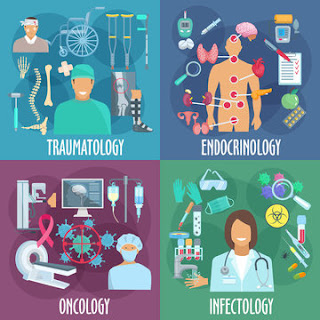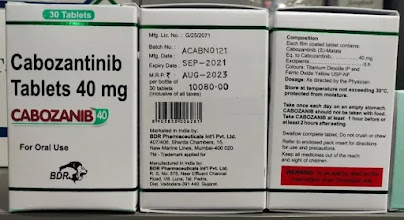Benefits & Importance Endocrinology Medicine
Endocrinology is a branch of biology and medicine focused on the human endocrine system, which regulates the body's metabolism and secretion of hormones. These hormones are responsible for development, growth, differentiation, movement, and sensory perception. Several glands make up this system, including the adrenal glands on the top of the kidneys. These glands secrete both male and female sex hormones and regulate the body's metabolism.
The use of computer-generated radio waves to create images of the body's organs and tissues is an important part of the medical field. These images can be used to diagnose neuroendocrine tumors in the pancreas, aneurysms of cerebral vessels, and various disorders of the eye, inner ear, and spinal cord. MRIs are also used to assess the functioning of the heart and its chambers, organ defects, and bone and joint problems.
Some endocrinologists have additional skills in areas outside of hormone production, such as diabetes. They can work in conjunction with gastroenterologists and oncologists. Diabetes control is crucial, as a hypoglycemic episode can be life-threatening or distressing. Pediatric endocrinology nurses also enjoy working with children. They can provide expert advice and help parents care for their children's physical development. And while most endocrinologists are physicians, there are other professions that are just as vital to the health of children.
While hormone levels naturally fluctuate throughout the course of a person's life, they can become too high or too low. When this happens, it can cause many different diseases and conditions. These imbalances usually result from the glands that produce hormones, and the endocrinologist's job is to determine what's causing the problem and how to restore normal levels. After diagnosing the problem, the doctor will suggest a treatment plan to help you get back on track.
The division of endocrinology medicine offers comprehensive clinical care to patients with a range of endocrine problems. Depending on the type of condition, endocrinologists can treat anything from menstrual irregularities to metabolic disorders and overproduction or underproduction of hormones. In addition, these specialists can help treat diseases involving infertility and osteoporosis, and even cancers of the endocrine glands.
The training to become an endocrinologist entails a lengthy education. The educational requirements include three years of medical school, a two to three-year residency in internal medicine, and a two-to-three-year fellowship. To become a board-certified endocrinologist, you must complete a board-certified endocrinology examination. Additionally, all medical providers must attend yearly learning courses, known as CME.
Your primary care physician may refer you to an endocrinologist if you have any endocrine conditions. These conditions can be chronic or long-term, and the primary healthcare provider may suspect hormone-related problems. An endocrinologist can help determine the exact cause of the problem, develop a treatment plan, and provide long-term care. The doctor may work as part of a multidisciplinary team for some conditions, such as a diabetes physician.
Conclusion:
Aark Pharmaceuticals provides unbeatable prices on pharmaceutical products for our customers. We stay on the cutting-edge of market trends and industry research to provide the best service at the lowest cost. Call today to start saving!




Comments
Post a Comment